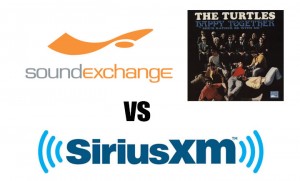 Copyright law can be a funny thing. Did you know that recordings made prior to February 1972 don’t enjoy the same copyright protections as those after?
Copyright law can be a funny thing. Did you know that recordings made prior to February 1972 don’t enjoy the same copyright protections as those after?
I didn’t. But satellite radio broadcaster SiriusXM knew, and has been using that as an excuse not to pay royalties on those pre–1972 recordings it plays. By law, the company is supposed to pay royalties equalling 8% of gross revenues to SoundExchange, the organization formed to collect performance royalties on behalf of labels and artists.
In a suit filed Monday (PDF) in the U.S. District Court of DC SoundExchange is suing SiriusXM for subtracting plays of pre–1972 recordings from its royalty payment.
Now, beginning with 2013 the rules governing performance royalties set by the Copyright Royalty Board specifically permit the exception of royalties for these recordings from before 1972. But that does not apply for the previous regulatory period ending 2012.
SoundExchange claims that SiriusXM has underpaid by “$50 to $100 million or more.” SiriusXM has not yet responded to a request for comment by either Reuters or the Wall Street Journal.
1960s rock band The Turtles join SoundExchange in not being “Happy Together” with SiriusXM. The band sued the satellite broadcaster in L.A. Superior Court as lead plaintiffs in a class action suit for “at least $100 million” earlier this month, also for unpaid royalties for pre–1972 songs.
While there is limited federal protection for their songs recorded before February 1972, The Turtles are claiming protection under California law that was also recognized by the Supreme Court in Goldstein v. California.
When looking at these cases, it’s important to keep in mind that terrestrial radio is still statutorily exempted from paying these performance royalties. Artists’ groups and labels have been pushing to end that exception. At the same time, digital music services like Pandora are pushing for royalty rates to be lowered–something for which musicians are taking them to task, as I reported in issue #5 of the Radio Survivor Bulletin (subscribe here).
At this point it should be clear that the future of the music industry is very much bound up with the future of broadcasters, whether online or on the airwaves. While on the surface it looks like a fight between big corporations, the welfare of individual artists, small broadcasters and independent labels are all caught up in it, too.
My fellow Radio Survivor Matthew Lasar offered his own compromise called “The Local Radio and Performance Rights Act." As Matthew explains, the LRPRA would,
“would exempt from any performance royalty payment schedule radio stations that the Federal Communications Commission classifies as “Local Radio Stations.” The bill would instruct the FCC to come up with a definition for this phrase via a public rule-making, and to include some of the same criteria the agency is using to pick candidates for Low Power FM licenses: the proximity of the license owner’s headquarters or main studio to the transmitter and how much local programming and music the station broadcasts.”
The purpose is to reward small, locally-oriented stations for serving their communities with a valuable music service by exempting them from royalty payments. At the same time, big stations owned by the likes of Clear Channel and CBS Radio would be subject to payments.
Matthew’s proposal highlights how terrestrial radio’s exemption from performance royalties is intended to recognize radio’s unique ability to introduce listeners to new music and artists. It also puts into relief how that grand bargain has broken down after 17 years of industry consolidation and vital local blood being squeezed out of stations that are run by automation programmed thousands of miles away with little local input.
How SoundExchange’s and The Turtles’ suits turn out will have implications for all manner of broadcasting. These suits and the overall royalty question is something to take seriously, for radio and music lovers alike.


